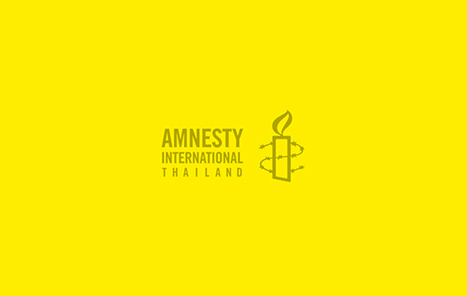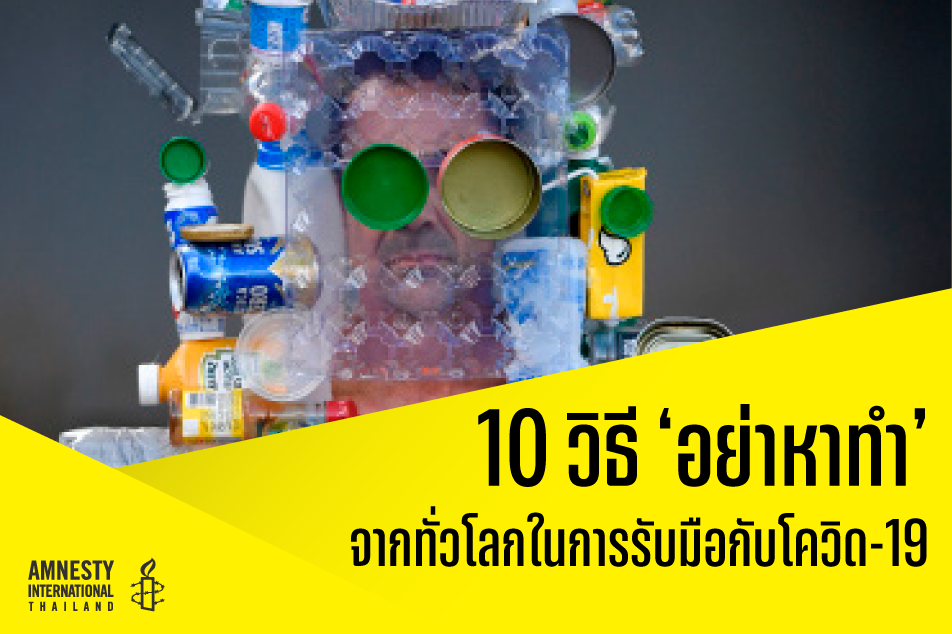Open remark of the Launch of Amnesty International Report 2020/21 "The State of the World's Human Rights"
29 March 2022
Amnesty International
By Erwin van der Borght,
Amnesty International’s Interim Director for East and Southeast Asia and the Pacific.
Welcome to the regional launch of AI 2021 Annual report on the state of human rights across the world, covering more than 150 countries across the globe;
The report has formally been launched by AI’s Secretary General, Agnes Callamard, from South Africa;
I will provide a short overview on some of the global human rights trends we saw during 2021 and then my colleagues will focus in more detail on the human rights situation in the region and in Thailand;
Our report shows that political leaders and large corporations have colluded to put profit and power ahead of people, betraying promises for a fair recovery from the pandemic.
At the G7 and G20 summits, as well as in national forums, political leaders paid lip service to policies to “build back better” for a fairer post-pandemic world. These policies could have addressed deep-seated inequalities that exacerbated the impact of the pandemic.
Instead they undercut vaccine successes, driving deeper inequality with the marginalized hit hardest by already crumbling health and economic systems.
Despite billions in public funding, large pharmaceutical companies are continuing to put their own greed before their human rights responsibilities.
Beyond the pandemic, COP26, the 2021 UN Climate Change Conference, failed to deliver on expectations. States were not even able to agree to commit to maintaining the global temperature rise at 1.5°C, condemning more than half a billion people, mostly in the Global South, to insufficient water and billions of people to extreme heatwaves.
Human suffering was compounded by the utter failure of the global community, particularly states in positions of power, to deal with the multiplication of conflicts around the world.
New and unresolved conflicts erupted around the world leaving civilians as collateral damage in their wake – displaced, killed, subject to sexual violence or and already fragile healthcare and economic systems were brought to the brink
The global failure to address these multiplying conflicts provoked greater instability and devastation. The ineffectiveness of international response to these crises was most evident with the paralysis at the UN Security Council. It failed to act on atrocities in Myanmar, human rights violations in Afghanistan, war crimes in Syria.
This shameful inaction, continued paralysis of multilateral bodies and lack of accountability of powerful states helped pave the way for Russia’s invasion of Ukraine, which has flagrantly violated international law.
Despite debate being sorely needed on how best to meet the world’s numerous challenges, many states redoubled efforts to muzzle critical voices.
When we needed independent voices most, retrograde trends to stifle dissent flourished as governments deployed a widening gamut of tools and tactics.
Human rights defenders, NGOs, media outlets and opposition leaders were the targets of unlawful detention, torture and enforced disappearance, many under the smokescreen of the pandemic.
At least 67 countries introduced new laws in 2021 to restrict freedom of expression, association or assembly.
Human rights defenders were arbitrarily detained in at least 84 of the 154 countries monitored by Amnesty International.
We must build on the persistent resistance offered by people’s movements and others the world over to stand up to government betrayal and fight every attempt to muzzle voices. In more than 80 countries, people rose to protest in vast numbers.
Amnesty will be launching a global campaign demanding respect for the right to freedom of expression and in order to reclaim civic space.




